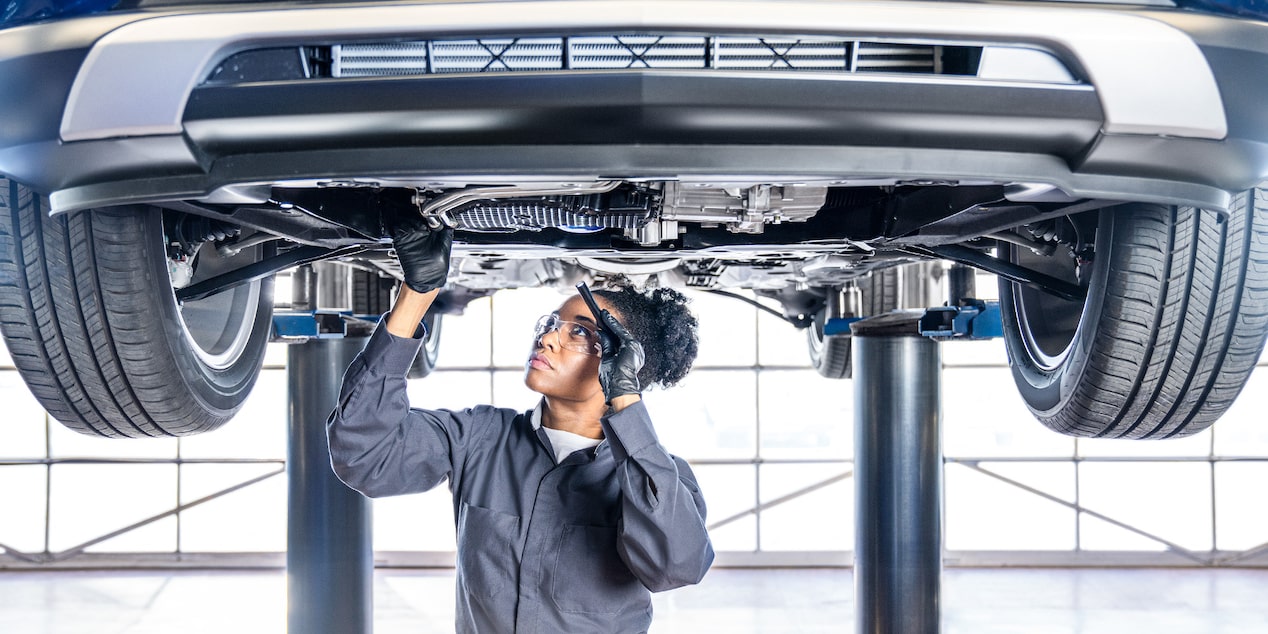All Categories
Featured

Modern lorries are furnished with sophisticated engine control devices (ECUs) that monitor and manage numerous parts of the engine. These systems can identify issues before they come to be obvious to the motorist, which is where engine diagnostics come right into play. Engine diagnostics is a powerful tool that enables auto mechanics to recognize concerns early, assisting protect against significant fixings and ensuring the longevity of your vehicle. Below's how engine diagnostics job and why they are essential for maintaining your vehicle's health and wellness.
- What Are Engine Diagnostics? Engine diagnostics refer to the procedure of utilizing specialized devices to evaluate the performance and check of a car's engine. The analysis system within a cars and truck gathers information from sensing units located throughout the engine and other vital parts, such as the transmission, fuel, and exhaust system. This information is after that processed by the car's onboard computer system, which can find irregularities or breakdowns.
Mechanics can link a diagnostic tool, normally an OBD-II (Onboard Diagnostics) scanner, to your auto's ECU to fetch error codes and real-time data. These codes show certain locations where the engine or various other parts may be experiencing problems, also before advising lights or efficiency adjustments are noticeable to the driver.
- Identifying Issues Early. One of the most significant benefits of engine diagnostics is the ability to identify troubles early, typically prior to they escalate into significant concerns. Little problems, such as a misfiring trigger plug, a defective sensor, or an inefficient fuel injector, can gradually aggravate if left untreated. With early detection via engine diagnostics, mechanics can resolve these minor problems prior to they create significant damage.
For example, if a sensing unit detects that the engine is running also lean or rich (insufficient or excessive fuel), this could lead to increased wear on engine parts or inadequate fuel performance. By diagnosing this early, the technician can adjust the air-fuel combination, preventing pricey fixings later.
- Avoiding Engine Damage. Gradually, troubles with the engine's elements, such as the timing belt, exhaust system, or cooling system, can lead to serious damage otherwise addressed quickly. An overheating engine due to a stopping working radiator or water pump can trigger extensive internal damage, such as distorted cyndrical tube heads or a blown gasket. Diagnosing problems early with the engine diagnostics system can stop these circumstances from proceeding to tragic engine failing.
The analysis system can additionally find issues with the exhaust system, such as a malfunctioning catalytic converter, which can cause bad engine performance and ultimate engine damage otherwise fixed.
- Lowering Fixing Costs. By determining and resolving small concerns early, engine diagnostics can conserve you significant cash on repair work. When problems are captured early, repair work have a tendency to be less complicated and extra budget friendly. For example, changing a faulty oxygen sensing unit or cleansing a clogged up fuel injector is fairly cost-effective compared to changing a whole engine due to overlook.
Additionally, engine diagnostics assist stop unneeded repair services by determining the exact cause of the issue. Without diagnostics, auto mechanics might have to execute considerable testing and trial-and-error techniques to diagnose the issue, which can increase both time and cost.

- Improving Vehicle Efficiency and Effectiveness. An additional advantage of routine engine diagnostics is that it aids enhance your automobile's performance and gas performance. If the engine is running efficiently and all systems are operating optimally, you will certainly experience far better velocity, smoother driving, and boosted fuel economic situation. Engine diagnostics can disclose concerns such as a stopped up air filter, a malfunctioning mass airflow sensing unit, or a damaged trigger plug that could impede your automobile's performance.
As an example, a malfunctioning thermostat might create your engine to get too hot or not reach its optimal operating temperature level. A diagnostic check will aid determine this problem early, avoiding overheating and ensuring your automobile runs at its finest.
- Why Regular Diagnostics Issue. While lots of drivers might think of engine diagnostics as something to do only when the "check engine" light shows up, normal diagnostics should become part of regular vehicle upkeep. Numerous automobile service center and dealers supply analysis checks as part of an annual solution or tune-up. Normal analysis scans aid catch issues before they create visible signs and symptoms or failures, eventually avoiding major repair work later on.
It is likewise worth keeping in mind that if you're planning to market or trade-in your automobile, having a current engine analysis report can be helpful. Prospective purchasers or dealers might be extra likely to use a greater trade-in worth or purchase rate if they know the car has been properly maintained and complimentary of major engine problems.
- Verdict. Engine diagnostics play an essential role in keeping your lorry running effectively and preventing costly repairs. By identifying problems early, stopping engine damage, decreasing repair prices, and improving performance, engine diagnostics ensure your car stays dependable for many years ahead. Regular analysis checks as part of your vehicle's regular upkeep will assist you catch small issues prior to they turn into major repair services, giving you tranquility of mind when driving and shielding your financial investment.
Latest Posts
Improved Top Quality, Driven by Service
Published Apr 18, 25
1 min read
Floor Covering Professionals That Treat You Like Household
Published Apr 18, 25
1 min read
Checking out the Advantages of WyHy Share Interest-bearing Account
Published Apr 18, 25
1 min read